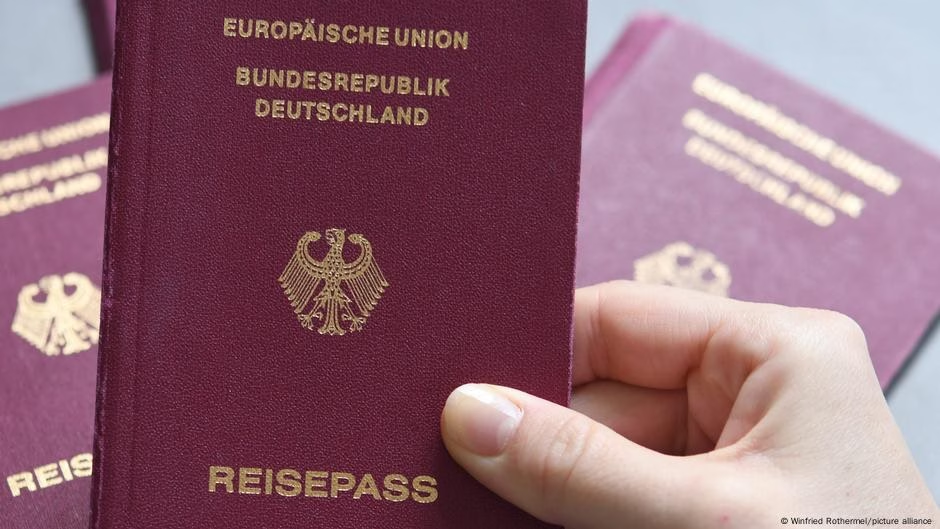Ongoing talks between conservatives from the Christian Democratic Union and Christian Social Union (CDU/CSU) and the center-left Social Democratic Party (SPD) have been marked by heated debates, sometimes leading to the slamming of doors, according to leaked information from participants. The working group responsible for dealing with immigration and integration issues faced extreme differences among its members.
A draft document intended as a basis for the coalition agreement of the new federal government was later produced and reviewed by DW. Under the section titled “Citizenship law,” the paper states the commitment to revise the citizenship law. It proceeds: “We will examine under constitutional law whether we can revoke the German citizenship of terror supporters, antisemites, and extremists who call for the abolition of the free and democratic basic order, if they hold another nationality.”
SPD politician Dirk Wiese, part of the working group responsible for “Domestic Affairs, Law, Migration and Integration,” celebrated it as a success for his party. Wiese pointed out that the SPD had secured dual citizenship options, something the CDU/CSU had wanted to restrict. “We still have the option of naturalization after five years. If you arrive here in the country very quickly, [and] learn the language after three years.”
The CDU/CSU’s broader proposal to withdraw German citizenship from dual nationals in certain situations faced resistance from the SPD—however, the SPD appears to have been unsuccessful in blocking this proposal. Some Social Democrats fear this proposal may create unequal treatment. Critics ask if naturalization will become a probationary period and if a German holding a second nationality will not be fully German.
Germany’s constitution, the Basic Law, generally prohibits the state from withdrawing German citizenship—-but there are exceptions. For example, sitting with a terrorist organization like the Islamic State, could result in the revocation of a German passport for those with a second passport.
The current draft proposal indicates that being identified as a “terrorist supporter” or “antisemite” in the future would be enough to revoke German nationality. However, how these terms are defined remains unclear. Antisemitism per se is not a criminal offense in Germany—it can lead to criminal prosecution for incitement to hatred, for example, Holocaust denial.
Besides criminal prosecution, the threat of expatriation could arise for dual nationals. However, this proposal disadvantages those with dual nationality as compared to individuals with only a German passport who express similar views.
Germany’s possible new government’s plans worry Jewish studies professor Elad Lapidot. Critics of the IHRA working definition, like Lapidot, have also faced accusations of “antisemitism.” Lapidot is involved with the Association of Palestinian and Jewish Academics.
Lapidot worries that history might repeat itself; under the Nazi regime, Germany stripped German Jews of their citizenship. The Federal Republic of Germany’s Basic Law later recognized these wrongs and enshrined provisions for victims of Nazi persecution.
Lapidot, who holds both German and Israeli citizenship, argues the IHRA working definition risks labeling critics of Israel as “antisemites.” This could suppress essential debate and disregard pluralism in a democracy.
German citizenship withdrawal was a tool of the Nazi regime; depriving German Jews of their citizenship on their emigration. In its recent resolution, the Bundestag endorsed the IHRA working definition on antisemitism, which can include broad interpretations of “antisemitism” and could be used to suppress freedom of expression.
Concern about the far-right Alternative for Germany (AfD) has also murmured globally. Its policies and visions revive those endorsed by fascists and Nazis in the 1930s.
The draft paper must still undergo constitutional review in German courts before the country can determine if individuals can be charged as “supporters of terrorism, antisemites or extremists.”
Source: https://www.dw.com/en/germany-could-withdraw-citizenship-due-to-antisemitism/a-72104457?maca=en-rss-en-all-1573-rdf








